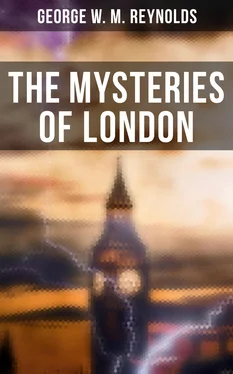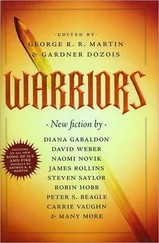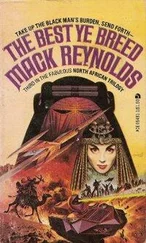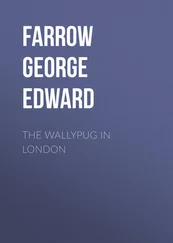City men are very extraordinary characters. They all know "a certain speculation that would make a sure fortune, if one had but the capital to work upon;" they never fail to observe, while making this assertion, that they could apply to a friend if they chose, but that they do not choose to lay themselves under the obligation; and they invariably affirm that nothing is more easy than to make a fortune in the City, although the greater portion of them remain without that happy consummation until the day of their deaths. Now and then, however, one of these City men does succeed in "making a hit" by some means or other; and then his old friends, the very men who are constantly enunciating the opinion relative to the facility with which fortunes are obtained in the City, look knowing, wink at each other, and declare "that it never could have been done unless he'd had somebody with plenty of money to back him."
Now Mr. Montague was one of those who adopted a better system of logic than the vulgar reasoning. He knew that there was but little merit in producing bread from flour, for instance; but he perceived that there was immense credit due to those who could produce their bread without any flour at all. Upon this principle he acted, and his plan was not unattended with success. He scorned the idea "that money was necessary to beget money;" he began his "City career," as he sometimes observed, without a farthing; and he was seldom without gold in his pocket.
No one knew where he lived. He was sometimes seen getting into a Hackney omnibus at the Flower Pot, a Camberwell one at the Cross Keys; or running furiously after a Hammersmith one along Cheapside; but as these directions were very opposite, it was difficult to deduce from them any idea of his domiciliary whereabouts.
He was young to be a City man; the class does not often include members under thirty; but of course there are exceptions to all rules; and Mr. George Montague was one.
He was then a City man: but if the reader be anxious to know what sort of business he transacted to obtain his living; whether he dabbled in the funds, sold wines upon commission, effected loans and discounts, speculated in shares, got up joint-stock companies, shipped goods to the colonies, purchased land in Australia at eighteen-pence an acre and sold it again at one-and-nine, conducted compromises for insolvent tradesmen, made out the accounts of bankrupts, arbitrated between partners who disagreed, or bought in things in a friendly way at public sales; whether he followed any of these pursuits, or meddled a little with them all, we can no more satisfy our readers than if we attempted the biography of the Man in the Moon.—all we can say is, that he was invariably in the City from eleven to four; that he usually had "an excellent thing in hand just at that moment;" and, in a word, that he belonged to the class denominated City Men !
We have taken some pains to describe this gentleman; for reasons which will appear hereafter.
Having been duly introduced to Walter Sydney by Mr. Stephens, and after a few observations of a general nature, Mr. Montague glided almost imperceptibly into topics upon which he conversed with ease and fluency.
Presently a pause ensued; and Mr. Stephens enquired "if there were anything new in the City?"
"Nothing particular," answered Montague. "I have not of course been in town this morning; but I was not away till late last night. I had a splendid thing in hand, which I succeeded in bringing to a favourable termination. By-the-by, there was a rumour on 'Change yesterday afternoon, just before the close, that Alderman Dumkins is all wrong."
"Indeed," said Stephens; "I thought he was wealthy."
"Oh! no; I knew the contrary eighteen months ago! It appears he has been starting a joint-stock company to work the Ercalat tin-mines in Cornwall——"
"And I suppose the mines do not really exist?"
"Oh! yes; they do—upon his maps! However, he has been exhibiting certain specimens of tin, which he has passed off as Ercalat produce; and it is now pretty generally known that the article was supplied him by a house in Aldgate."
"Then he will be compelled to resign his gown?"
"Not he! On the contrary, he stands next in rotation for the honours of the civic chair; and he intends to go boldly forward as if nothing had happened. You must remember that the aldermen of the City of London have degenerated considerably in respectability during late years; and that none of the really influential and wealthy men in the City will have anything to do with the corporation affairs. You do not see any great banker nor merchant wearing the aldermanic gown. The only alderman who really possessed what may be called a large fortune, and whose pecuniary position was above all doubt, resigned his gown the other day in disgust at the treatment which he received from his brother authorities, in consequence of his connexion with the Weekly Courier —the only newspaper that boldly, fearlessly, and effectually advocates the people's cause."
"And Dumkins will not resign, you think?"
"Oh! decidedly not. But for my part," added Montague, "I feel convinced that the sooner some change is made in the City administration the better. Only conceive the immense sums which the corporation receives from various sources, and the uses to which they are applied. Look at the beastly guzzling at Guildhall, while there are in the very heart of the City Augean stables of filth, crime, and debauchery to be cleansed—witness Petticoat-lane, Smithfield——"
A species of groan or stifled exclamation of horror issued from the lips of Walter as Montague uttered these words: her countenance grew deadly pale, and her entire frame appeared to writhe under a most painful reminiscence or emotion.
"Compose yourself, compose yourself," said Stephens, hastily. "Shall I ring for a glass of water, or wine, or anything——"
"No, it is past," interrupted Walter Sydney; "but I never think of that horrible—that appalling adventure without feeling my blood curdle in my veins. The mere mention of the word Smithfield——"
"Could I have been indiscreet enough to give utterance to anything calculated to annoy?" said Montague, who was surprised at this scene.
"You were not aware of the reminiscence you awoke in my mind by your remark," answered Walter, smiling; "but were you acquainted with the particulars of that fearful night, you would readily excuse my weakness."
"You have excited Mr. Montague's curiosity," observed Stephens, "and you have now nothing to do but to gratify it."
"It is an adventure of a most romantic kind—an adventure which you will scarcely believe—and yet one that will make your hair stand on end."
"I am now most anxious to learn the details of this mysterious occurrence," said Montague, scarcely knowing whether these remarks were made in jest or earnest.
Walter Sydney appeared to reflect for a few moments; and then commenced the narrative in the following manner:—
"It is now a little more than four years ago—very shortly after I first arrived at this house—that I rode into town, attended by the same groom who is in my service now. I knew little or nothing of the City, and felt my curiosity awakened to view the emporium of the world's commerce. I accordingly determined to indulge in a ramble by myself amidst the streets and thoroughfares of a place of which such marvellous accounts reach those who pass their youth in the country. I left the groom with the horses at a livery-stable in Bishopsgate-street, with a promise to return in the course of two or three hours. I then roved about to my heart's content, and never gave the lapse of time a thought. Evening came, and the weather grew threatening. Then commenced my perplexities. I had forgotten the address of the stables where the groom awaited my return; and I discovered the pleasing fact that I had lost my way just at the moment when an awful storm seemed ready to break over the metropolis. When I solicited information concerning the right path which I should pursue, I was insulted by the low churls to whom I applied. To be brief, I was overtaken by darkness and by the storm, in a place which I have since ascertained to be Smithfield market. I could not have conceived that so filthy and horrible a nuisance could have been allowed to exist in the midst of a city of so much wealth. But, oh! the revolting streets which branch off from that Smithfield. It seemed to me that I was wandering amongst all the haunts of crime and appalling penury of which I had read in romances, but which I never could have believed to exist in the very heart of the metropolis of the world. Civilisation appeared to me to have chosen particular places which it condescended to visit, and to have passed others by without even leaving a foot-print to denote its presence."
Читать дальше












